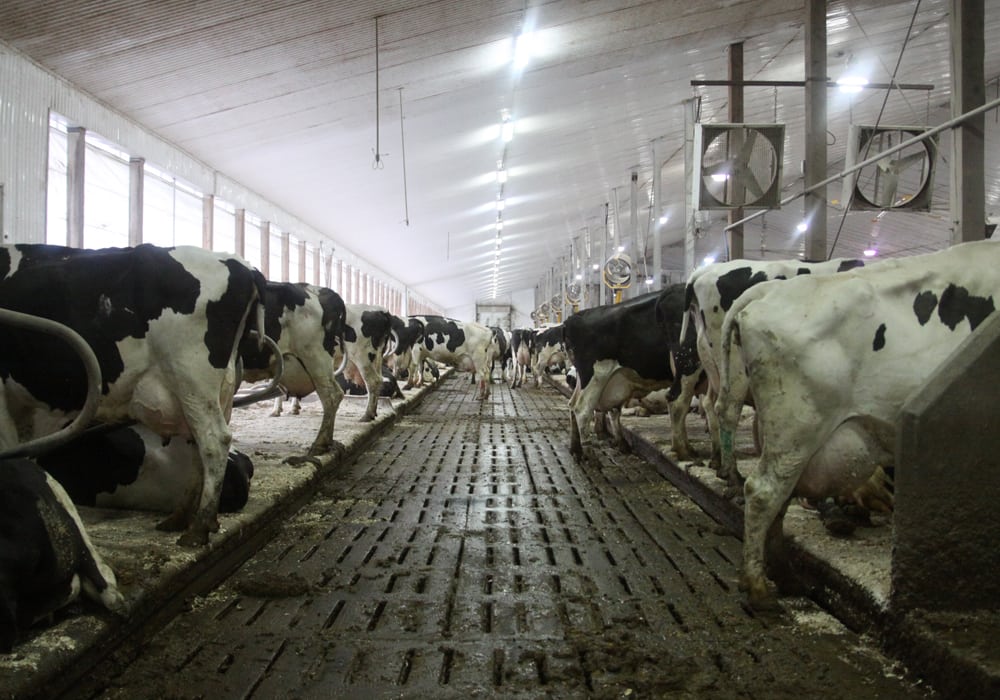Whenever free market and supply management farmers’ interests clash there’s a predictable escalation of nasty sparring between members of the alienated farming sectors.
Free market farmers get vexed and annoyed by the risks to crucial foreign markets that are created by Canada’s maintenance of the protectionist supply management (SM) system; SM farmers feel infuriated that their carefully regulated and balanced system gets undermined, weakened and destabilized every time Canada tries to make or expand free trade deals. Free market farmers feel that their future prospects are threatened by SM; SM farmers feel that free market farmers are willing to see the SM industries die in order to keep untrustworthy foreigners happy.
Read Also

Proactive approach best bet with looming catastrophes
The Pan-Canadian Action Plan on African swine fever has been developed to avoid the worst case scenario — a total loss ofmarket access.
These are two solitudes and their worlds are very different.
This can lead to some nastiness between people on either side of this fence. I’ve seen free market farmers accuse SM farmers of being coddled wards-of-the-state, unwilling to face the competitive challenges almost every other farming sector lives with as well as surviving by exploiting consumers; I’ve seen SM farmers accusing free market farmers of being lazy twice-a-year (seeding and harvest) producers who are both unviable and the recipients of major government emergency aid whenever their industries run into trouble.
This is unhelpful. Very few actually utter these insults, but many see them online and hear them at the coffee shop. They don’t solve anything. They just send people deeper into their corners and more likely to come out swinging.
The truth is that farmers farm within the structures their sectors are governed by. If you want to be a dairy or poultry producer in Canada, you have to be an SM farmer. If you want to be a canola, wheat, beef or pig producer in Canada you’ve got to accept the free market as your reality. It’s not like it’s a choice. It’s like working in a union shop, where you automatically join when you are hired, whether or not you like it. It’s also like working in a non-union workplace, where you aren’t represented by a union, whether or not you would like to be.
Farmers in both solitudes tend to become system partisans over time. That is understandable, since fully comprehending the nature of the industry you are in and assimilating its principles essentially makes you part of the system, not just subject to it. Sometimes farmers can begin to confuse themselves with their system.
But that can lead to intolerance for other approaches and other systems, and that’s what we can see here. Some people are denouncing the opposing system and lauding their own, seeing each other as enemies or antagonists. It’d be good to dial that back a bit. Both systems have their flaws and neither is perfect.
What’s obvious now is that SM is going to survive, and there was always little doubt that it would. However, it’s going to be smaller, weaker and possibly rudderless due to NAFTA2. That’s a terrible situation for SM farmers to be placed in, regardless of any compensation they receive. The government has placed them in a situation of decline and decay, unless somebody figures a miraculous way out of the vise. (Class 7 milk mostly did that, but it has been mostly killed, so that hope is gone.)
Dairy and poultry farmers are good farmers, every bit as good as grain, beef cattle and pig farmers. They’re farming within the system that exists. Free market farmers should be sympathizing with their SM neighbours and biting their tongues when somebody trolls them. And they should support SM farmers’ calls for compensation for the losses they are facing. They’ve taken a lot of hits from TPP, CETA and now NAFTA2, and those hits were partly accepted by the government as a way to get better foreign market access for the free market commodities.
The same goes for SM farmers who are tempted to shoot nasty comments at those who troll them. Trolls are trolls and they love getting a reaction. But showing a little appreciation to other farmers for the stress they have suffered because of the risks SM repeatedly brings to the majority of Western Canadian farmers every time trade talks occur would also go a long way. Gratitude is more convincing than defiance and denunciation.

















